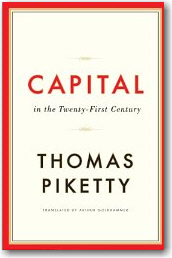
This is a post about books even though you wouldn’t know it from the title. Hopefully, I can connect the dots with or without logic.
My brothers and I were taught that it was not only rude, but just plain wrong, to leave food on our plates. Why?
Generally speaking, food left was food wasted. Years later the giant chow hall sigh at Navy boot camp “suggested”: TAKE ALL YOU WANT BUT EAT ALL YOU TAKE.
It was okay to be a pig as long as you didn’t leave anything in the trough.
Why was leaving food wrong? Because people were starving in country XYZ. We were informed that while eating two or three times the amount of food we needed wouldn’t harm anybody, that throwing away food literally took it off their plates. Asking how that worked in practical terms was considered rude and/or that you thought your parents, school teachers and pastors were liars.
Later, we were told that books cost money (so does food, as it turned out) and that reading only half a book meant that–figuratively and/or literally speaking–you had thrown away half the book’s cover price. Of course, by today’s standards in which people are slinging books out there on Kindle for 99 cents, reading only a third of it means you only threw away 66 cents even though–had you sent that to countries where money goes farther (and often further)–life in general would be better for everyone.
The bottom line on unfinished dinners and unfinished books was shame. Whether it was Aunt Naomi’s brick-hard fruitcake or a dreadfully depressing novel like All Quiet on the Western Front, we were supposed to soldier on to the final battle no matter how much collateral damage our stomachs and psyches suffered in the process.

Today, that shame isn’t quite gone with the wind, but it’s getting there. In fact, reviewers on Amazon and GoodReads often confess that “This book sucks even though I stopped reading on page 10.” How brazen is that, shame-wise? You really need to finish the book because some kid in city XYZ is going without a story tonight.
Now we’re getting statistics on unfinished books. People mean well, but like boring stews and bland deserts, their eyes are bigger than their reading endurance. So, consequently, they bought “Capital in the Twenty-First Century” by Thomas Piketty and “A Brief History of Time” by Stephen Hawking seriously intending to eat up every word, but then lost interest a few pages into their literary meals.
Using something called a Hawking Index (H.I.)–explained in The Summer’s Most Unread Book Is…–scientists determined that these two books top the list of unfinished books with folks getting only 2.4% and 6.6% of the way through. These days, fewer people believe in such admonitions as TAKE ALL YOU WANT BUT READ ALL YOU TAKE.
People seem to care less about waste, shame or the value of soldiering on. We’re more comfortable with tweets, texting and sound bites, even though such things often leave us ignorant of the big pictures, full course meals and lengthy tomes the world has to offer. We’re more of a TAKE VERY LITTLE AND PURSUE IT UNTIL BORED kind of society these days. More information, words and food all require commitment and frankly, we don’t want to promise that.
I’ve been tempted of late to throw several books out the window before finishing them. But, I kept on going, not so much because people are staving for words on continent XYZ but because I didn’t have any more fresh books in the house. When that happens, it’s like throwing away your last cracker because it’s a Ritz rather than a Triscuit.
As I read on in spite of the hardships involved, I try not to feel pride for soldiering on or shame for wishing I weren’t. In case it matters, I still clean up my plate.
–
You May Also Like: Can the Hawking Index tell us when people give up on books? in The Guardian.
–Malcolm